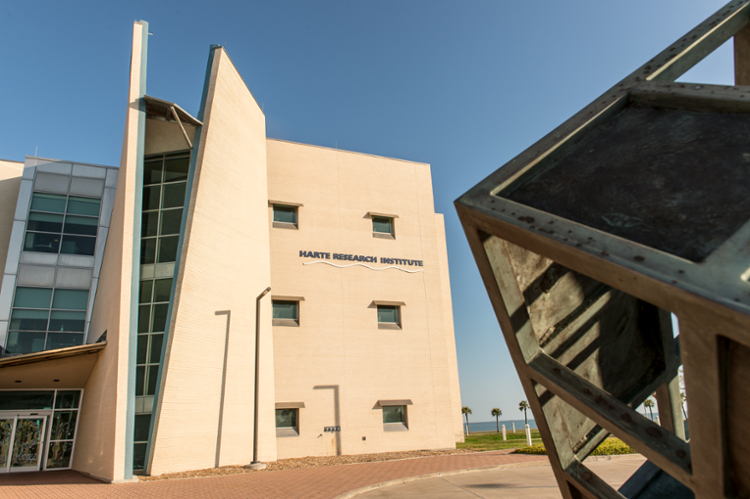TAMU-CC Autonomy Research Institute, Executing on Behalf of A&M System, to Lead Center for Advanced Aviation Technologies
The CAAT is projected to create thousands of high-paying jobs and stimulate the Texas economy through billions in new investments.
Authorized by Congress with an annual funding of $35 million for four years, this $140 million initiative will drive the advancement of next-generation unmanned aviation technologies and ensure their safe integration into the National Airspace System (NAS).
Learn more about ARI hereCORPUS CHRISTI, Texas – Executing on behalf of the Texas A&M University System, the Autonomy Research Institute (ARI) at Texas A&M University-Corpus Christi will play a lead role in establishing and operating the Federal Aviation Administration (FAA) Center for Advanced Aviation Technologies (CAAT). Authorized by Congress with an annual funding of $35 million for four years, this $140 million initiative will drive the advancement of next-generation unmanned aviation technologies and ensure their safe integration into the National Airspace System (NAS).
“Texas A&M-Corpus Christi’s and ARI’s involvement in the CAAT solidifies our role as pioneers in the rapidly evolving field of unmanned flight,” said Dr. Kelly M. Miller, President and CEO of Texas A&M-Corpus Christi. “The university’s vision for growth in this cutting-edge field began 11 years ago when ARI first became an FAA test site. We are deeply grateful for the trust placed in us by the A&M System and for the steadfast support we’ve received locally from the City of Corpus Christi and from the Texas Legislature, which has been instrumental in advancing ARI’s mission and cultivating the next generation of aviation leaders.”
Under this bipartisan agreement and in alignment with Section 961 of the FAA Reauthorized Act of 2024, authored by U.S. Senator Ted Cruz, the CAAT will result in the establishment, management, and operation of a new airspace laboratory in the Dallas-Fort Worth area. The initiative will also include five flight demonstration zones and testing corridors, including three in South and Southwest Texas, all designed to support the safe integration of advanced air mobility aircraft into the NAS. Spanning 11 congressional districts in Texas, this extensive project will directly benefit the constituents and communities within those areas.
“The FAA is committed to advancing new and emerging aviation technologies, as well as innovative aviation concepts and services, including advanced air mobility, powered-lift aircraft, and other cutting-edge aviation technologies — all areas where ARI excels,” said Mike Sanders, Executive Director of ARI. “As highly innovative, yet undeniably disruptive, unmanned aircraft technologies reshape our skies, we acknowledge that sharing space with manned airspace is more than a technical challenge; it’s a matter of doing it with transparency and safety.”
The highly competitive project received 28 proposals from entities across multiple states, and TAMUS was selected to manage the CAAT because of its proximity to major international airports and an FAA regional headquarters, existing infrastructure for advanced aviation technology testing, and strong academic programs and industry partnerships.
“From supporting emergency response after hurricanes and floods to advancing research and workforce development, ARI has been laying the groundwork for expansion since 2014, starting with small drones and now advancing to large autonomous aircraft capable of carrying four to six people,” Sanders said. “This is the future taking flight, and we’re leading the way in developing technologies for the 21st-century travel and workforce technologies.”
The CAAT is projected to create thousands of high-paying jobs and stimulate the Texas economy through billions in new investments. According to Deloitte, the U.S. market for advanced air mobility (AAM) is expected to reach $115 billion annually by 2035. As of April 1, 2025, the FAA reported over 1 million drones registered, including 440,825 commercial drones and 444,960 certified remote pilots.
The center brings together a total of 19 member institutions of the Texas A&M System, as well as partners from the University of North Texas, Southern Methodist University, and other esteemed organizations.
Read the Texas A&M System press release: https://news.tamus.edu/texas-am-university-system-to-launch-center-for-advanced-aviation-technologies-in-fort-worth/
Read the U.S. Department of Transportation press release: https://www.transportation.gov/briefing-room/us-transportation-secretary-sean-p-duffy-and-us-sen-ted-cruz-announce-texas-am-will
